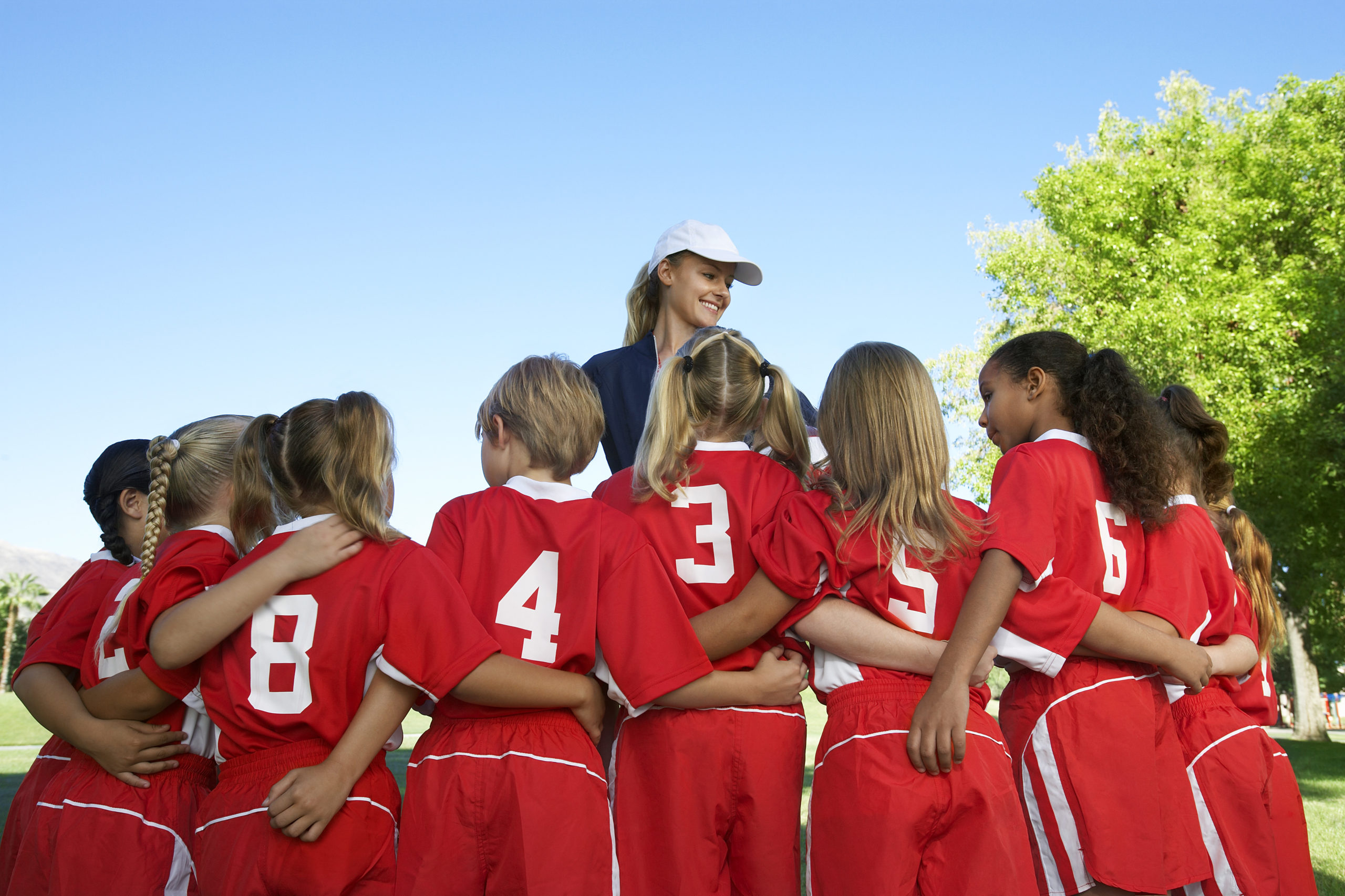
My colleague Jen Mueller, recently wrote a book on communication. Jen is the Seattle Seahawks sideline reporter and owns a Super Bowl ring for her role on the Seahawk’s radio broadcast. In her book, The Influential Conversationalist, she writes about how conversation skills develop leadership potential and how a person’s daily interactions can show they are ready for more responsibility and bigger opportunities. It’s a great read for anyone looking to improve their communication skills. I also thought the book has a number of lessons coaches and parents can apply to their kid’s sports, including these five pieces of advice from Seahawks players. Here are 5 Questions, inspired by excerpts from Jen’s book, that all sport parents should ask themselves.
5 questions sports parents should ask themselves
Are you encouraging patience and hard work? “Sometimes you do have to wait your turn.” Seahawks linebacker Bobby Wagner says. “Sometimes you have older guys with more experience – guys who have been in it longer and all these different things, and it’s not quite your turn yet. But the best thing I think you can do is continue to work on yourself and continue to better yourself, and that’s what I did. I just continued to lead by example. You don’t have to say much. If you go out and do the things you’re supposed to do it can’t be ignored. That consistency can’t be ignored. Your time will come when it’s supposed to come.”
Are you being honest with your evaluations? There are limitations to what anyone can do. (Including your child.) This isn’t a bad thing, it’s a reality thing. Seahawks wide receiver Doug Baldwin grappled with this very issue early in his career and was forced to be super honest about his abilities.
“I used to watch film of Randy Moss and Terrell Owens before I got into the NFL, and I had to look at myself in mirror and say, ‘Doug you’re not 6’3”, 6’4” you don’t run a 4.3-40. That’s not you.’ I had to direct my passion and my goals. I started looking at guys who were similar to me, like Steve Smith. Basically, it came down to me looking in the mirror and saying what am I capable of?”
Do you teach your child to be open to adjacent opportunities? Seahawks safety Kam Chancellor wanted to be a running back as a young player, then he wanted to be a quarterback. It wasn’t until he got to college that his coach moved him to safety: the position he was drafted to play in the NFL. And one he excels at so much for the Seahawks he helped redefine it for the entire league.
Chancellor wouldn’t have had the opportunity to find his dream job without his time spent as a running back and quarterback. Being on the football field, being around the game, opened the right doors.
Do you avoid putting your kids in a position to fail? You aren’t going to learn unless you not only have the ability to fail, but do so on a regular basis. It’s not an easy conversation to have with yourself, because we don’t often look at the successful side of failing. Seahawks All Pro cornerback Richard Sherman does: “Going through adversity you learn a lot about yourself – figure out how to react and move in situations. [You learn] how you affect others and how you can affect other situations.”
Sherman gets that experience as an NFL player. Make a mistake on one play and there’s an opportunity to come back and do better on the very next one. It’s the same opportunity he had in Pee Wee football, and something an athlete at any level can appreciate.
Before giving advice to your child are you be able to tell yourself what to do? Are you going through the motions or do you know exactly what you need to do, and why? Critical thinking and being able to coach yourself are part of developing leadership skills.
NFL coaches aren’t part of the huddle before plays, but KJ Wright’s internal running commentary keeps him on track and focused. “I preach to myself ‘good depth, so don’t get close to the line,’” Wright says. “When I’m in coverage, I tell myself ‘stay square stay square.’ If there’s a certain formation a team always runs a certain play out of, I tell myself it’s coming. Those are the main things I tell myself: ‘good depth, stay square and anticipate the history of ball play.’”
If you want to be able to coach someone else up, you need to be able to do it for yourself first.
To download a free chapter of the book, order your copy, and connect with Jen visit her website: TalkSportytoMe.com or buy her book here.
Jen Mueller pursued a career in sports broadcasting after repeated comments of “talks too much” from teachers and family members. A former high school athlete and high school football official, she currently serves as the radio sideline reporter for the Seattle Seahawks and is a member of the Seattle Mariners television broadcast team. She founded Talk Sporty to Me in 2009 and helps to make sports conversations useful in building business relationships and communicating more effectively.












